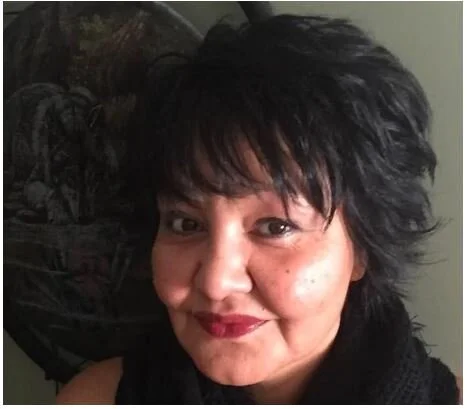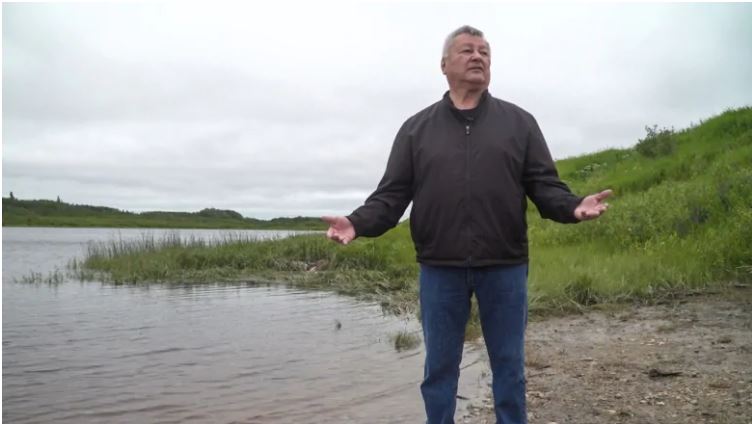Aklavik has begun delivering water again after a software problem affecting a computer at the hamlet’s water plant was resolved. A system error earlier this week meant the hamlet could not monitor water quality and, as a result, trucks were told to stop delivering water to homes, acting senior administrator Tom Ng said on Wednesday. Initially, technicians in British Columbia had struggled to fix the error remotely.
Gametì water plant down until at least Tuesday
The water plant in Gametì, N.W.T., is down until at least Tuesday afternoon when a technician is scheduled to come and fix it. Chief Doreen Arrowmaker said the residents of the community of about 280 have been advised to conserve water until at least then. According to Arrowmaker, the community's senior administrative officer posted on the community's Facebook page that staff completed all mandated checks with the relevant guidance from water plant inspectors but the problem wasn't solved. "In the meantime, please save your water as there will be no regular/call-out water deliveries until late tomorrow afternoon/evening," the post reads.
Federal Funding To End Boil Water Advisory At Neyaashiinigmiing
A planned water treatment plant at Neyaashiinigmiing is now getting $59.8 million in federal funding to provide safe drinking water. Indigenous Services Canada’s website says the Cape Croker Public Water system has had a boil water advisory since January 2019, which became a long-term advisory the following year. Earlier this month, the Chippewas of Nawash Unceded First Nation put out a release on its website saying, “Indigenous Services Canada has completed a requested review of the cost estimate for the new water treatment plant and committed significant additional funds for the project.”
Sachs Harbour boil water advisory has been lifted
The boil water advisory in Sachs Harbour, N.W.T., has been lifted, according to a Monday news release. The boil water advisory had been put into effect in early June due to higher than normal turbidity levels (muddy water). The levels have since dropped to "acceptable levels" in treated water from the water plant and "all issues" have been corrected. There have been no illnesses associated with drinking water reported in the community, the release says. The normal use of drinking water can resume.
$10 million solution for Verner’s brown water problem
There’s hope at the end of a long water pipe for Verner residents who have endured ‘brown water’ issues for decades. The culprit is high levels of manganese, a naturally occurring mineral in the Veuve River. And it’s been a problem ever since the water plant was built in the 1970s. On Tuesday, West Nipissing council received a report that recommends connecting the community of 1,100 people to municipal water services as the best solution.
Verner’s ‘brown water’ problem makes rare winter appearance
West Nipissing municipal staff are flushing hydrants in Verner today as they investigate a mysterious winter appearance of ‘brown water’ during the past couple of weeks. Some residents, but not all, are reporting water issues that have a long history in the area due to manganese found in the Veuve River, the source for Verner’s drinking water. While the mineral is considered safe to ingest, it’s actually required in small amounts in the human diet, it smells and tastes bad and is hard on laundry.
Building trust in its tap water will be Neskantaga’s next big challenge
The chief of the First Nation in Northern Ontario that has suffered through the country’s longest continuous boil water advisory is hopeful that water coming out of the taps in the homes of Neskantaga will be safe to drink sometime in early 2021. The question now is: Even if public health and First Nation officials pronounce the water safe to drink, will anyone trust in the purity of what comes out of their taps?
Northern Alberta hamlet evacuating residents after water plant shut down
Leadership in a northern Alberta hamlet will be evacuating about 150 people after a chemical mix-up at the community's water plant. Vern Janvier, chief of the Prairie Chipewyan First Nation, said the First Nation decided on Monday to offer residents who rely on piped water the option of leaving their homes. There are 107 houses on the system, and Janvier said from one to six people live in each house. He anticipates there will be between 150 and 200 evacuees.
8-10 years to fix Attawapiskat water problems, chief estimates
It's been one month since Attawapiskat First Nation declared a state of emergency over its poor water quality. The measure was taken in the northern Ontario community due to high levels of trihalomethane (THMs) and haloacetic acids (HAAs) in the water the residents use for bathing and cooking. The fly-in community has a separate system for its drinking water.










